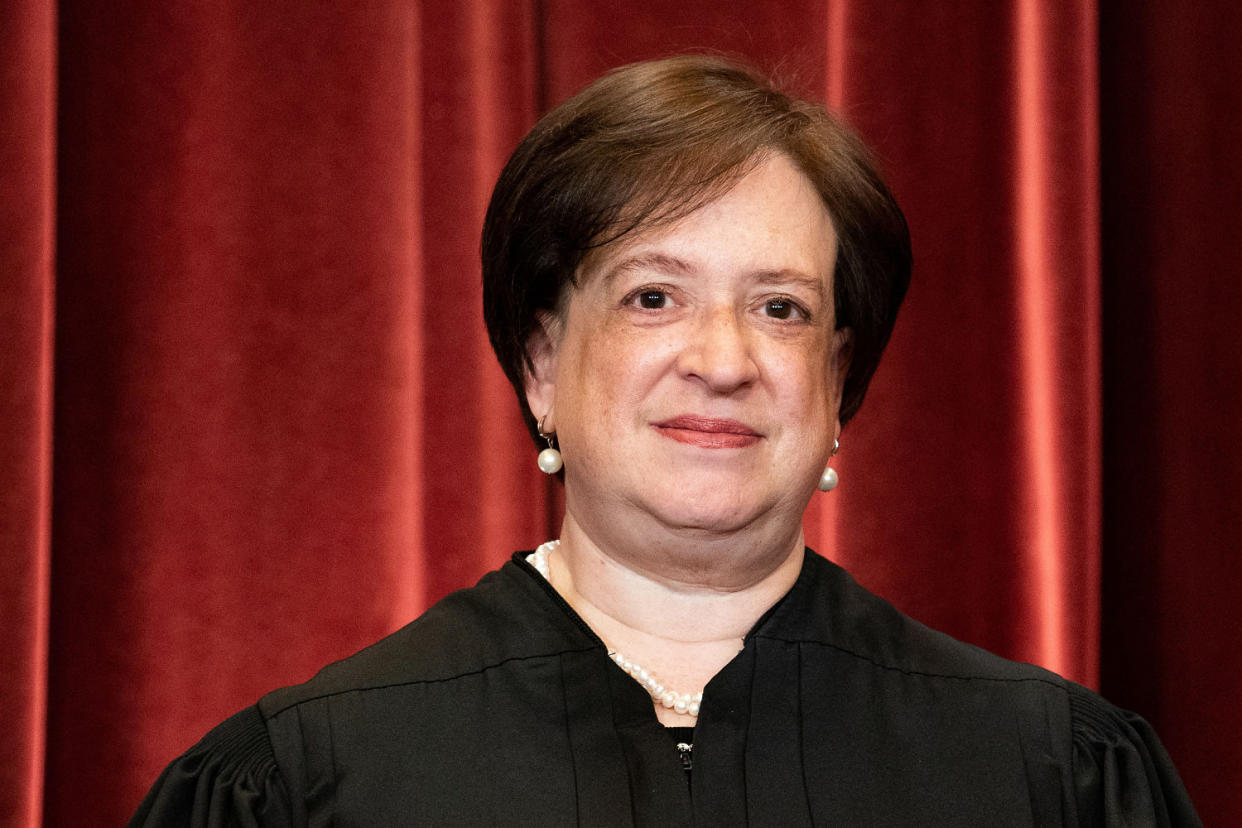Alito authors 6-3 ruling in favor of South Carolina Republicans in racial gerrymandering case

- Oops!Something went wrong.Please try again later.
The Supreme Court sided with South Carolina Republicans in the Roberts Court’s latest legal assault on voting that makes it even harder to prove racial gerrymandering.
Justice Samuel Alito — who’s making news for other reasons lately — wrote the 6-3 ruling, joined by his fellow GOP appointees and with the Democratic appointees dissenting. Alito’s opinion approves a map deemed unconstitutional by a lower court panel and, more broadly, his rationale provides cover for minority voter suppression.
Under Chief Justice John Roberts, the court previously has disallowed racial gerrymandering but enabled partisan gerrymandering. It can be difficult to distinguish between the two. Roberts, who authored the 5-4 decision in 2019 effectively blessing partisan gerrymandering, noted during the October argument in this South Carolina case that “disentangling race and politics in a situation like this is very, very difficult.”
The challenge in this case came after the 2020 census, when South Carolina Republicans sought a congressional map that kicked out more than 30,000 Black people from the state’s 1st Congressional District. Rep. Nancy Mace, R-S.C., had won the seat in 2020 by barely beating a Democrat. Republicans apparently didn’t want to chance another close one, and Mace won by a wider margin in 2022 with the new map in place.
But a three-judge panel in January 2023, which evaluated evidence and witnesses, said the South Carolina map is an illegal racial gerrymander that pushed Black people out for predominantly racial reasons. The panel cited Supreme Court precedent that said sorting voters on racial grounds is suspect even if race is used as a proxy for politics.
Yet at the oral argument in October, the Supreme Court’s GOP majority seemed poised to reinstate the map that was ruled an unconstitutional gerrymander in the lower court. As expected, the majority has sided with South Carolina Republicans.
Alito’s ruling chastised the three-judge panel for only paying “lip service” to two related considerations on the line between partisan and racial gerrymandering:
Reversing the district court, Alito wrote: “That misguided approach infected the District Court’s findings of fact, which were clearly erroneous under the appropriate legal standard.” He wrote that the challengers presented “no direct evidence of a racial gerrymander” and that the circumstantial evidence “falls far short of showing that race, not partisan preferences, drove the districting process.”
But it’s Alito’s opinion that’s misguided, Justice Elena Kagan argued for the three dissenters. She wrote that the majority not only failed to properly defer to trial court factual findings but that it also rewrote the law in the process, making it harder to prove racial gerrymandering.
“In the majority’s version, all the deference that should go to the court’s factual findings for the plaintiffs instead goes to the losing defendant, because it is presumed to act in good faith,” Kagan wrote, joined by Justices Sonia Sotomayor and Ketanji Brown Jackson.
“So the wrong side gets the benefit of the doubt,” she noted, adding that the majority had invented “a new rule of evidence to burden plaintiffs in racial-gerrymandering cases. As of today, courts must draw an adverse inference against those plaintiffs when they do not submit a so-called alternative map — no matter how much proof of a constitutional violation they otherwise present.”
Kagan concluded that, when it comes to suppressing minority influence, the Supreme Court majority sends the message of “Go right ahead.”
Notably, the high court took so long to issue Thursday’s ruling that, while it was pending, the lower court said that the map could be used in this election cycle, even though it had been deemed illegal. And while Kagan’s dissent does well to expose the deep problems with the majority’s treatment of this specific case, the majority’s rationale poses even deeper problems for racial discrimination and voting in the future.
Subscribe to the Deadline: Legal Newsletter for weekly updates on the top legal stories, including news from the Supreme Court, the Donald Trump cases and more.
This article was originally published on MSNBC.com

